First cohort of IUSSP CRVS Fellows The IUSSP Scientific Panel on Population Perspectives and Demographic Methods to Strengthen Civil Registration and Vital Statistics (CRVS) Systems issued a call for applications for a CRVS Fellows Program to stimulate and support increased engagement of young demographers and population scientists in action-oriented research in support of CRVS and legal identity. The fellowship program supports early-career and mid-career professionals via a mentored research fellowship with the IUSSP CRVS Panel. This fellowship program is made possible with financial support from the Centre of Excellence for Civil Registration and Vital Statistics (CRVS) Systems. Housed at the International Development Research Centre (IDRC), the Centre of Excellence is jointly funded by Global Affairs Canada and IDRC. The Panel received 140 applications from all major regions of the world from demographers and population specialists within government, academia, civil society organizations and multilateral institutions. Research proposals spanned all three focus areas of the IUSSP CRVS Panel: - Applied research on completeness and quality assessment of vital event registration (namely births, deaths and marriages) and strengthening of the feedback loop between completeness/quality assessment and CRVS systems strengthening efforts;
- Interdisciplinary research into the relationship between civil registration and related population data systems and new biometrically-based legal identity systems; and
- Practical research (including qualitative field-based research and mixed methods research) on the proximate determinants and the social and economic consequences of under-registration of vital events.
The IUSSP CRVS Panel had a challenging time in reviewing such a large and high-quality pool of fellowship applications, and is pleased to announce our inaugural cohort of 8 IUSSP CRVS Fellows: 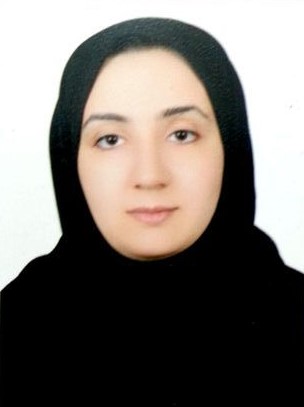 Khadijeh Asadisarvestani is an assistant professor at the University of Sistan and Baluchestan, Iran. She is a Ph.D. graduate in demography from University Sains Malaysia. She is eager to understand how demographic changes are affected by socioeconomic, cultural, and political issues, how they change over time, and how they affect different dimensions of human life and the structure of society particularly health issues. Accordingly, she has conducted different research projects on fertility, contraceptive usage, child marriage, unintended pregnancies, and maternal mortality. One of her main research interests is the causes of not registering vital events in a timely manner, the impact of not having identity documents on health, especially immigrants and women's health, and on access to health services and quality of life. As an example, she has been working on projects seeking to understand the impact of the registration of vital events on a thalassemia and hemophilia prevention programme and the impact of not having identity documents on thalassemia and hemophilia patients access to social, health and medical services in Sistan and Baluchestan Province, Iran. Khadijeh Asadisarvestani is an assistant professor at the University of Sistan and Baluchestan, Iran. She is a Ph.D. graduate in demography from University Sains Malaysia. She is eager to understand how demographic changes are affected by socioeconomic, cultural, and political issues, how they change over time, and how they affect different dimensions of human life and the structure of society particularly health issues. Accordingly, she has conducted different research projects on fertility, contraceptive usage, child marriage, unintended pregnancies, and maternal mortality. One of her main research interests is the causes of not registering vital events in a timely manner, the impact of not having identity documents on health, especially immigrants and women's health, and on access to health services and quality of life. As an example, she has been working on projects seeking to understand the impact of the registration of vital events on a thalassemia and hemophilia prevention programme and the impact of not having identity documents on thalassemia and hemophilia patients access to social, health and medical services in Sistan and Baluchestan Province, Iran.
 Amanda Cheong is an Assistant Professor of Sociology at the University of British Columbia in Canada. Her research examines the stratifying impacts of legal status, with a focus on undocumented, stateless, and refugee populations. During her fellowship term, she will be working on her book project, entitled Omitted Lives, which is an ethnography of marginalized families’ experiences of exclusion from civil registration in Malaysia. She earned her PhD in Sociology and Social Policy at Princeton University in the United States. Amanda Cheong is an Assistant Professor of Sociology at the University of British Columbia in Canada. Her research examines the stratifying impacts of legal status, with a focus on undocumented, stateless, and refugee populations. During her fellowship term, she will be working on her book project, entitled Omitted Lives, which is an ethnography of marginalized families’ experiences of exclusion from civil registration in Malaysia. She earned her PhD in Sociology and Social Policy at Princeton University in the United States.
 Helena Cruz Castanheira is a Population Affairs Officer at the Latin American and Caribbean Demographic Centre (CELADE), Population Division of ECLAC, United Nations. Helena works on population estimates and projections with a focus on analyzing the demographic dynamics of Latin American countries. Her project seeks to assess the completeness of CRVS data by sex, reassessing adult mortality estimates in selected countries. Helena has a Ph.D. and a master’s degree in Demography from the University of Pennsylvania. She also has a postdoctoral and a master’s degree in Demography and a B.A. in Economics from the Federal University of Minas Gerais (Cedeplar-UFMG) in Brazil. Helena Cruz Castanheira is a Population Affairs Officer at the Latin American and Caribbean Demographic Centre (CELADE), Population Division of ECLAC, United Nations. Helena works on population estimates and projections with a focus on analyzing the demographic dynamics of Latin American countries. Her project seeks to assess the completeness of CRVS data by sex, reassessing adult mortality estimates in selected countries. Helena has a Ph.D. and a master’s degree in Demography from the University of Pennsylvania. She also has a postdoctoral and a master’s degree in Demography and a B.A. in Economics from the Federal University of Minas Gerais (Cedeplar-UFMG) in Brazil.
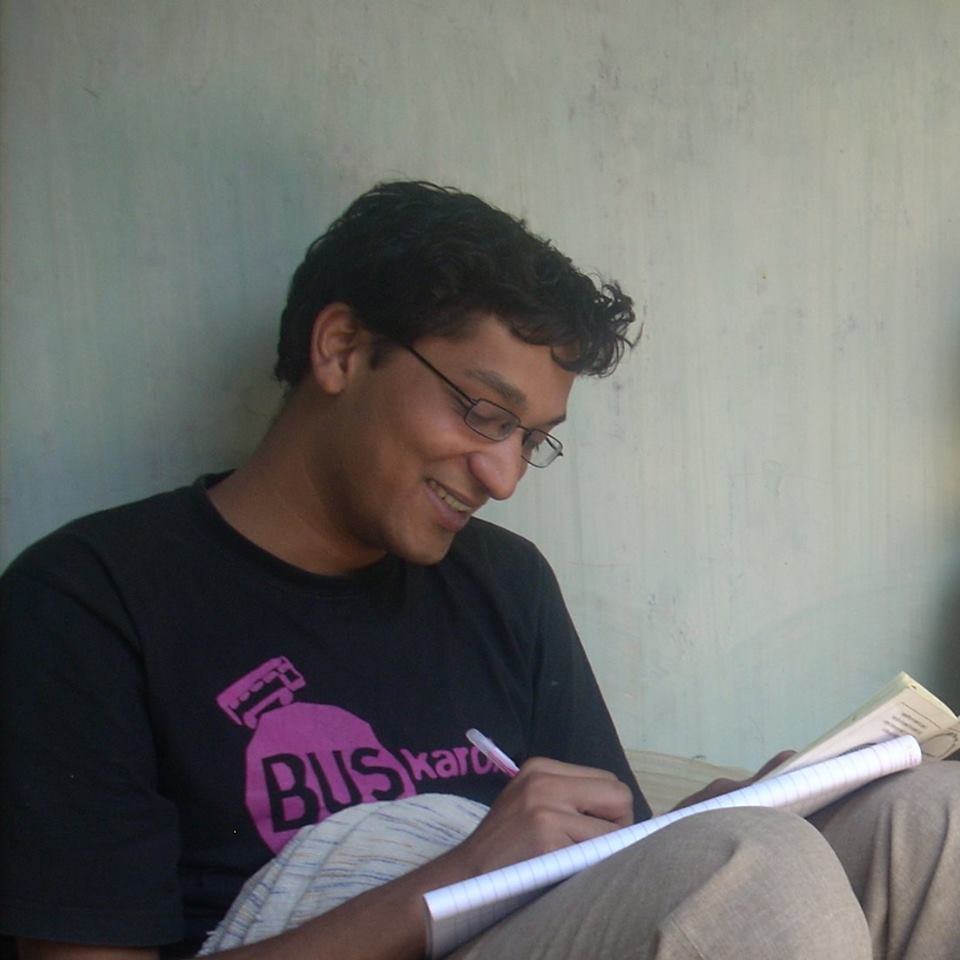 Aashish Gupta is a PhD candidate in Demography and Sociology at the University of Pennsylvania. His research interests are in health, inequality, environment, and demography. Aashish’s work on civil registration focuses on learning from those areas in developing countries where civil registration is complete as well as those where it is not. To this end, he is examining causes of death among children in Delhi and constructing life expectancies at the district level for states in India where civil registration is complete. He also recently concluded a census of ten randomly selected villages in a district in Madhya Pradesh to examine completeness in death registration. Aashish grew up in India and completed an Integrated MA in Development Studies at the Indian Institute of Technology Madras. Aashish Gupta is a PhD candidate in Demography and Sociology at the University of Pennsylvania. His research interests are in health, inequality, environment, and demography. Aashish’s work on civil registration focuses on learning from those areas in developing countries where civil registration is complete as well as those where it is not. To this end, he is examining causes of death among children in Delhi and constructing life expectancies at the district level for states in India where civil registration is complete. He also recently concluded a census of ten randomly selected villages in a district in Madhya Pradesh to examine completeness in death registration. Aashish grew up in India and completed an Integrated MA in Development Studies at the Indian Institute of Technology Madras.
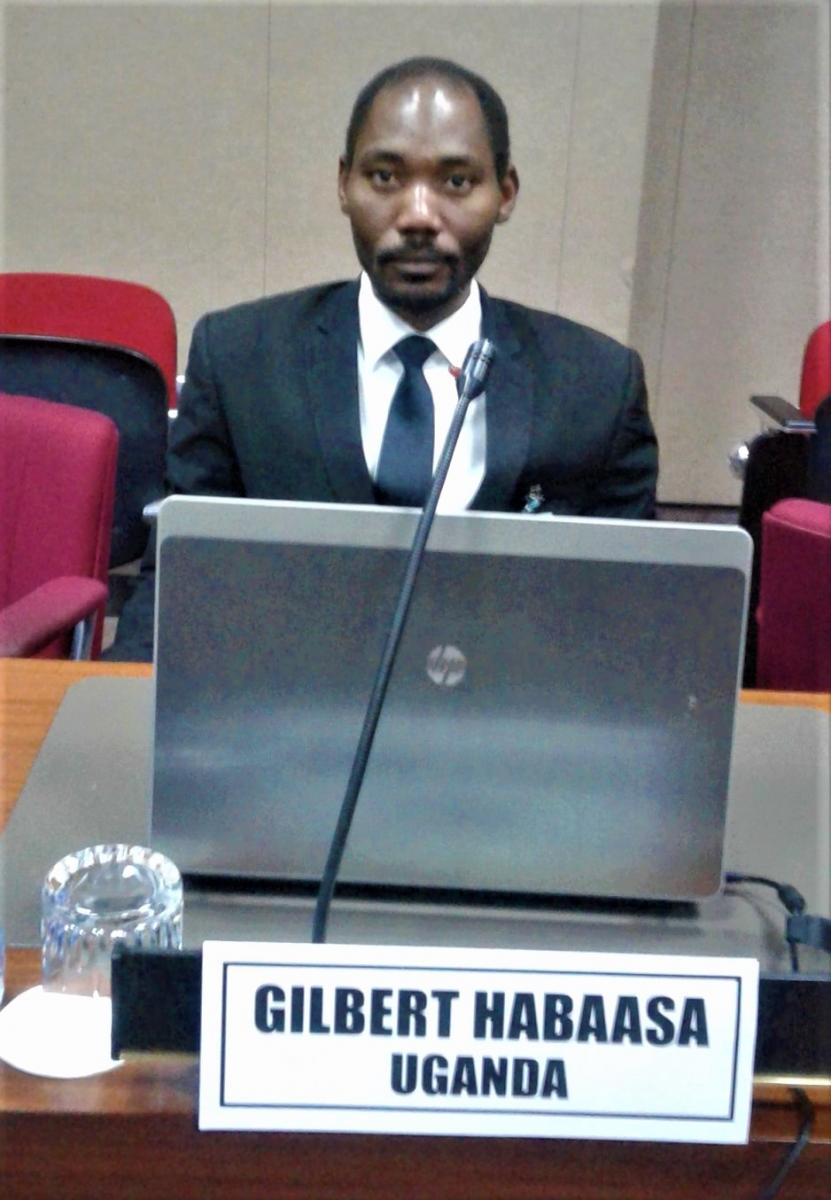 Gilbert Habaasa is a senior researcher, Directorate of Research and Applied Statistics, Population and Development Consult based in Kampala Uganda. His research examines the determinants of CRVS system revitalization in Uganda particularly death registration and death statistics compilation. Uganda, like most of the sub-Saharan African countries has not published any mortality statistics generated from its civil registration system. His work draws on cross-sectional survey design by using both quantitative and qualitative data collection methods. Data will be collected from hospital facilities through District Health Information System 2 enrolled in all 112 districts of Uganda. Also data will be collected from National Identification Registration Authority, Uganda Bureau of Statistics, funeral service companies, local governments and community members. Gilbert Habaasa has a Master of Science in Population Studies from Makerere University, Uganda (2010-2012). Previously, Gilbert Habaasa was a research fellow at CRVS Secretariat, UNECA in Addis Ababa (2013-2015) in which he worked on the Africa Programme on Accelerated Improvement of Civil Registration and Vital Statistics (APAI-CRVS). Gilbert Habaasa is a senior researcher, Directorate of Research and Applied Statistics, Population and Development Consult based in Kampala Uganda. His research examines the determinants of CRVS system revitalization in Uganda particularly death registration and death statistics compilation. Uganda, like most of the sub-Saharan African countries has not published any mortality statistics generated from its civil registration system. His work draws on cross-sectional survey design by using both quantitative and qualitative data collection methods. Data will be collected from hospital facilities through District Health Information System 2 enrolled in all 112 districts of Uganda. Also data will be collected from National Identification Registration Authority, Uganda Bureau of Statistics, funeral service companies, local governments and community members. Gilbert Habaasa has a Master of Science in Population Studies from Makerere University, Uganda (2010-2012). Previously, Gilbert Habaasa was a research fellow at CRVS Secretariat, UNECA in Addis Ababa (2013-2015) in which he worked on the Africa Programme on Accelerated Improvement of Civil Registration and Vital Statistics (APAI-CRVS).
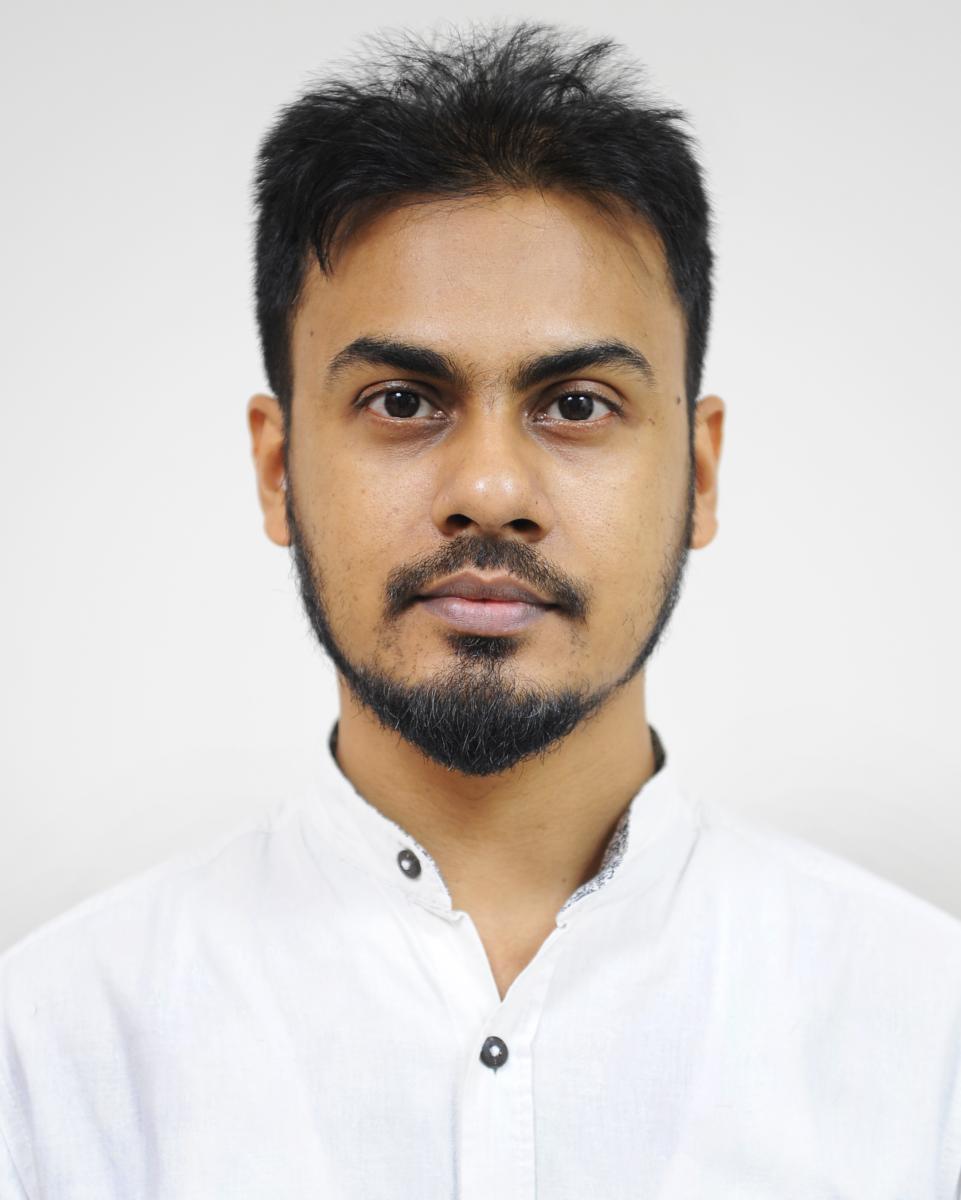 M Moinuddin Haider is an Assistant Scientist from icddr,b, an international health research organization based in Bangladesh. His research interests include social determinants of health, registration of vital events, measurement of health and demographic indicators, and demography of religions. Moin is currently working on validation of methods in measuring health, fertility and mortality indicators, causes of death under-registration in rural Bangladesh, and impact evaluation of health programmes. He has a decade-long experience in monitoring and impact evaluation of health and population programmes implemented by government and NGOs in Bangladesh. Moin is an MSc in Applied Statistics (2007) from University of Dhaka, Bangladesh and a Master of Public Health (2013) from Independent University, Bangladesh. M Moinuddin Haider is an Assistant Scientist from icddr,b, an international health research organization based in Bangladesh. His research interests include social determinants of health, registration of vital events, measurement of health and demographic indicators, and demography of religions. Moin is currently working on validation of methods in measuring health, fertility and mortality indicators, causes of death under-registration in rural Bangladesh, and impact evaluation of health programmes. He has a decade-long experience in monitoring and impact evaluation of health and population programmes implemented by government and NGOs in Bangladesh. Moin is an MSc in Applied Statistics (2007) from University of Dhaka, Bangladesh and a Master of Public Health (2013) from Independent University, Bangladesh.
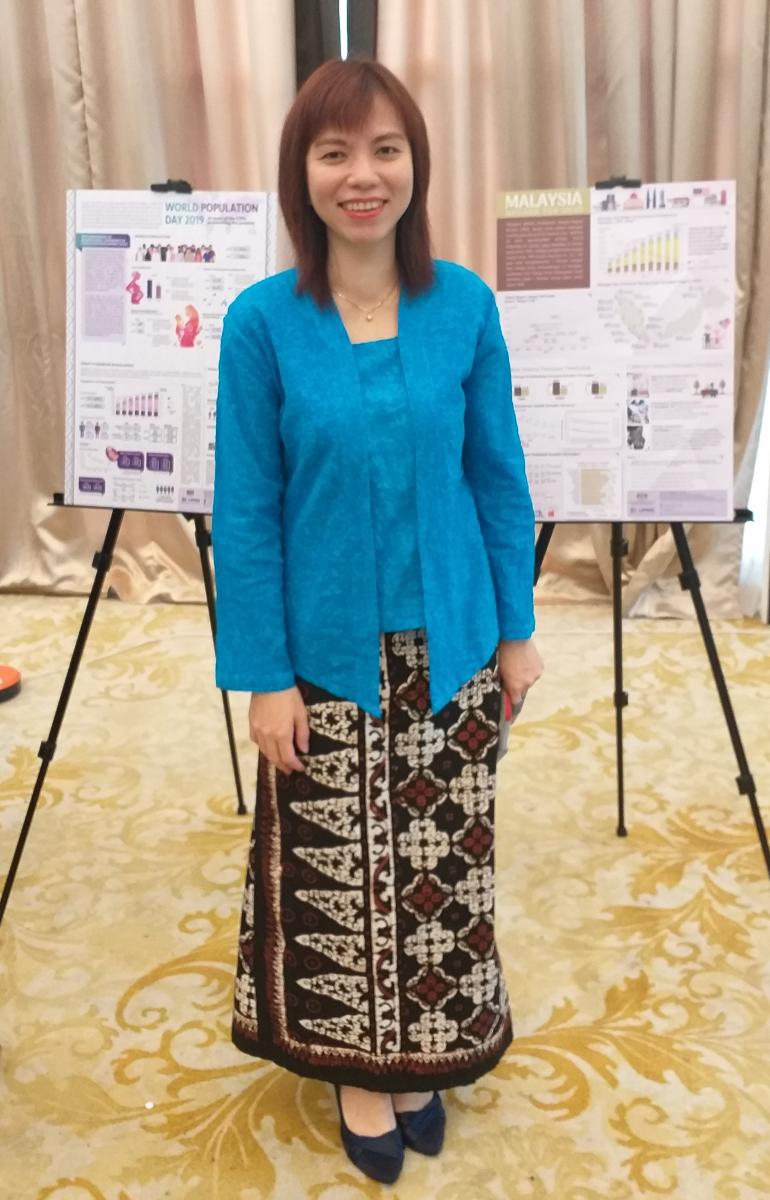 Siow Li Lai is Senior Lecturer at the Department of Applied Statistics, Faculty of Economics and Administration, University of Malaya (Malaysia), where she obtained her Ph.D in Demography, Master of Applied Statistics, and Bachelor of Economics. She is the coordinator of the Population Studies Unit, University of Malaya. Her research interests include demographic analysis, population and gender studies, public and reproductive health, and social studies. Her project for the IUSSP CRVS Fellows Program is on assessing the reliability of the fertility indicators from the Malaysian civil registration system. The assessment will be carried out by comparing the number of births from the civil registration with the data from the population census for small geographical areas. She was a recipient of the National University of Singapore Fellowship in 2014, and University of Michigan Fellowship in 2017. Siow Li Lai is Senior Lecturer at the Department of Applied Statistics, Faculty of Economics and Administration, University of Malaya (Malaysia), where she obtained her Ph.D in Demography, Master of Applied Statistics, and Bachelor of Economics. She is the coordinator of the Population Studies Unit, University of Malaya. Her research interests include demographic analysis, population and gender studies, public and reproductive health, and social studies. Her project for the IUSSP CRVS Fellows Program is on assessing the reliability of the fertility indicators from the Malaysian civil registration system. The assessment will be carried out by comparing the number of births from the civil registration with the data from the population census for small geographical areas. She was a recipient of the National University of Singapore Fellowship in 2014, and University of Michigan Fellowship in 2017.
 Marta Pasqualini is a Post-Doc Research Fellow at the Department of Political Sciences, University of Perugia (Italy). Marta's research interests focus on social determinants of health within a life course approach. Specifically, her project focuses on social and health disparities caused by differences in the access to civil registration for the homeless population in Italy. The proof of legal identity that civil registration provides is crucial for the homeless in accessing entitlements or services. Yet, to date, there has been a paucity of empirical research on the association between civil registration and access to healthcare for the Italian homeless population. Marta earned her Ph.D. (2019) in Demography at the University of Rome La Sapienza. She also attended the European Doctoral School of Demography (EDSD) in 2015-2016. Marta Pasqualini is a Post-Doc Research Fellow at the Department of Political Sciences, University of Perugia (Italy). Marta's research interests focus on social determinants of health within a life course approach. Specifically, her project focuses on social and health disparities caused by differences in the access to civil registration for the homeless population in Italy. The proof of legal identity that civil registration provides is crucial for the homeless in accessing entitlements or services. Yet, to date, there has been a paucity of empirical research on the association between civil registration and access to healthcare for the Italian homeless population. Marta earned her Ph.D. (2019) in Demography at the University of Rome La Sapienza. She also attended the European Doctoral School of Demography (EDSD) in 2015-2016.
The fellows and IUSSP CRVS Panel will host a CRVS research workshop on the sidelines of the 2020 annual meeting of the Population Association of America in Washington D.C. |

 Khadijeh Asadisarvestani is an assistant professor at the University of Sistan and Baluchestan, Iran. She is a Ph.D. graduate in demography from University Sains Malaysia. She is eager to understand how demographic changes are affected by socioeconomic, cultural, and political issues, how they change over time, and how they affect different dimensions of human life and the structure of society particularly health issues. Accordingly, she has conducted different research projects on fertility, contraceptive usage, child marriage, unintended pregnancies, and maternal mortality. One of her main research interests is the causes of not registering vital events in a timely manner, the impact of not having identity documents on health, especially immigrants and women's health, and on access to health services and quality of life. As an example, she has been working on projects seeking to understand the impact of the registration of vital events on a thalassemia and hemophilia prevention programme and the impact of not having identity documents on thalassemia and hemophilia patients access to social, health and medical services in Sistan and Baluchestan Province, Iran.
Khadijeh Asadisarvestani is an assistant professor at the University of Sistan and Baluchestan, Iran. She is a Ph.D. graduate in demography from University Sains Malaysia. She is eager to understand how demographic changes are affected by socioeconomic, cultural, and political issues, how they change over time, and how they affect different dimensions of human life and the structure of society particularly health issues. Accordingly, she has conducted different research projects on fertility, contraceptive usage, child marriage, unintended pregnancies, and maternal mortality. One of her main research interests is the causes of not registering vital events in a timely manner, the impact of not having identity documents on health, especially immigrants and women's health, and on access to health services and quality of life. As an example, she has been working on projects seeking to understand the impact of the registration of vital events on a thalassemia and hemophilia prevention programme and the impact of not having identity documents on thalassemia and hemophilia patients access to social, health and medical services in Sistan and Baluchestan Province, Iran. Amanda Cheong is an Assistant Professor of Sociology at the University of British Columbia in Canada. Her research examines the stratifying impacts of legal status, with a focus on undocumented, stateless, and refugee populations. During her fellowship term, she will be working on her book project, entitled Omitted Lives, which is an ethnography of marginalized families’ experiences of exclusion from civil registration in Malaysia. She earned her PhD in Sociology and Social Policy at Princeton University in the United States.
Amanda Cheong is an Assistant Professor of Sociology at the University of British Columbia in Canada. Her research examines the stratifying impacts of legal status, with a focus on undocumented, stateless, and refugee populations. During her fellowship term, she will be working on her book project, entitled Omitted Lives, which is an ethnography of marginalized families’ experiences of exclusion from civil registration in Malaysia. She earned her PhD in Sociology and Social Policy at Princeton University in the United States. Helena Cruz Castanheira is a Population Affairs Officer at the Latin American and Caribbean Demographic Centre (CELADE), Population Division of ECLAC, United Nations. Helena works on population estimates and projections with a focus on analyzing the demographic dynamics of Latin American countries. Her project seeks to assess the completeness of CRVS data by sex, reassessing adult mortality estimates in selected countries. Helena has a Ph.D. and a master’s degree in Demography from the University of Pennsylvania. She also has a postdoctoral and a master’s degree in Demography and a B.A. in Economics from the Federal University of Minas Gerais (Cedeplar-UFMG) in Brazil.
Helena Cruz Castanheira is a Population Affairs Officer at the Latin American and Caribbean Demographic Centre (CELADE), Population Division of ECLAC, United Nations. Helena works on population estimates and projections with a focus on analyzing the demographic dynamics of Latin American countries. Her project seeks to assess the completeness of CRVS data by sex, reassessing adult mortality estimates in selected countries. Helena has a Ph.D. and a master’s degree in Demography from the University of Pennsylvania. She also has a postdoctoral and a master’s degree in Demography and a B.A. in Economics from the Federal University of Minas Gerais (Cedeplar-UFMG) in Brazil. Aashish Gupta is a PhD candidate in Demography and Sociology at the University of Pennsylvania. His research interests are in health, inequality, environment, and demography. Aashish’s work on civil registration focuses on learning from those areas in developing countries where civil registration is complete as well as those where it is not. To this end, he is examining causes of death among children in Delhi and constructing life expectancies at the district level for states in India where civil registration is complete. He also recently concluded a census of ten randomly selected villages in a district in Madhya Pradesh to examine completeness in death registration. Aashish grew up in India and completed an Integrated MA in Development Studies at the Indian Institute of Technology Madras.
Aashish Gupta is a PhD candidate in Demography and Sociology at the University of Pennsylvania. His research interests are in health, inequality, environment, and demography. Aashish’s work on civil registration focuses on learning from those areas in developing countries where civil registration is complete as well as those where it is not. To this end, he is examining causes of death among children in Delhi and constructing life expectancies at the district level for states in India where civil registration is complete. He also recently concluded a census of ten randomly selected villages in a district in Madhya Pradesh to examine completeness in death registration. Aashish grew up in India and completed an Integrated MA in Development Studies at the Indian Institute of Technology Madras. Gilbert Habaasa is a senior researcher, Directorate of Research and Applied Statistics, Population and Development Consult based in Kampala Uganda. His research examines the determinants of CRVS system revitalization in Uganda particularly death registration and death statistics compilation. Uganda, like most of the sub-Saharan African countries has not published any mortality statistics generated from its civil registration system. His work draws on cross-sectional survey design by using both quantitative and qualitative data collection methods. Data will be collected from hospital facilities through District Health Information System 2 enrolled in all 112 districts of Uganda. Also data will be collected from National Identification Registration Authority, Uganda Bureau of Statistics, funeral service companies, local governments and community members. Gilbert Habaasa has a Master of Science in Population Studies from Makerere University, Uganda (2010-2012). Previously, Gilbert Habaasa was a research fellow at CRVS Secretariat, UNECA in Addis Ababa (2013-2015) in which he worked on the Africa Programme on Accelerated Improvement of Civil Registration and Vital Statistics (APAI-CRVS).
Gilbert Habaasa is a senior researcher, Directorate of Research and Applied Statistics, Population and Development Consult based in Kampala Uganda. His research examines the determinants of CRVS system revitalization in Uganda particularly death registration and death statistics compilation. Uganda, like most of the sub-Saharan African countries has not published any mortality statistics generated from its civil registration system. His work draws on cross-sectional survey design by using both quantitative and qualitative data collection methods. Data will be collected from hospital facilities through District Health Information System 2 enrolled in all 112 districts of Uganda. Also data will be collected from National Identification Registration Authority, Uganda Bureau of Statistics, funeral service companies, local governments and community members. Gilbert Habaasa has a Master of Science in Population Studies from Makerere University, Uganda (2010-2012). Previously, Gilbert Habaasa was a research fellow at CRVS Secretariat, UNECA in Addis Ababa (2013-2015) in which he worked on the Africa Programme on Accelerated Improvement of Civil Registration and Vital Statistics (APAI-CRVS). Siow Li Lai is Senior Lecturer at the Department of Applied Statistics, Faculty of Economics and Administration, University of Malaya (Malaysia), where she obtained her Ph.D in Demography, Master of Applied Statistics, and Bachelor of Economics. She is the coordinator of the Population Studies Unit, University of Malaya. Her research interests include demographic analysis, population and gender studies, public and reproductive health, and social studies. Her project for the IUSSP CRVS Fellows Program is on assessing the reliability of the fertility indicators from the Malaysian civil registration system. The assessment will be carried out by comparing the number of births from the civil registration with the data from the population census for small geographical areas. She was a recipient of the National University of Singapore Fellowship in 2014, and University of Michigan Fellowship in 2017.
Siow Li Lai is Senior Lecturer at the Department of Applied Statistics, Faculty of Economics and Administration, University of Malaya (Malaysia), where she obtained her Ph.D in Demography, Master of Applied Statistics, and Bachelor of Economics. She is the coordinator of the Population Studies Unit, University of Malaya. Her research interests include demographic analysis, population and gender studies, public and reproductive health, and social studies. Her project for the IUSSP CRVS Fellows Program is on assessing the reliability of the fertility indicators from the Malaysian civil registration system. The assessment will be carried out by comparing the number of births from the civil registration with the data from the population census for small geographical areas. She was a recipient of the National University of Singapore Fellowship in 2014, and University of Michigan Fellowship in 2017. Marta Pasqualini is a Post-Doc Research Fellow at the Department of Political Sciences, University of Perugia (Italy). Marta's research interests focus on social determinants of health within a life course approach. Specifically, her project focuses on social and health disparities caused by differences in the access to civil registration for the homeless population in Italy. The proof of legal identity that civil registration provides is crucial for the homeless in accessing entitlements or services. Yet, to date, there has been a paucity of empirical research on the association between civil registration and access to healthcare for the Italian homeless population. Marta earned her Ph.D. (2019) in Demography at the University of Rome La Sapienza. She also attended the European Doctoral School of Demography (EDSD) in 2015-2016.
Marta Pasqualini is a Post-Doc Research Fellow at the Department of Political Sciences, University of Perugia (Italy). Marta's research interests focus on social determinants of health within a life course approach. Specifically, her project focuses on social and health disparities caused by differences in the access to civil registration for the homeless population in Italy. The proof of legal identity that civil registration provides is crucial for the homeless in accessing entitlements or services. Yet, to date, there has been a paucity of empirical research on the association between civil registration and access to healthcare for the Italian homeless population. Marta earned her Ph.D. (2019) in Demography at the University of Rome La Sapienza. She also attended the European Doctoral School of Demography (EDSD) in 2015-2016.